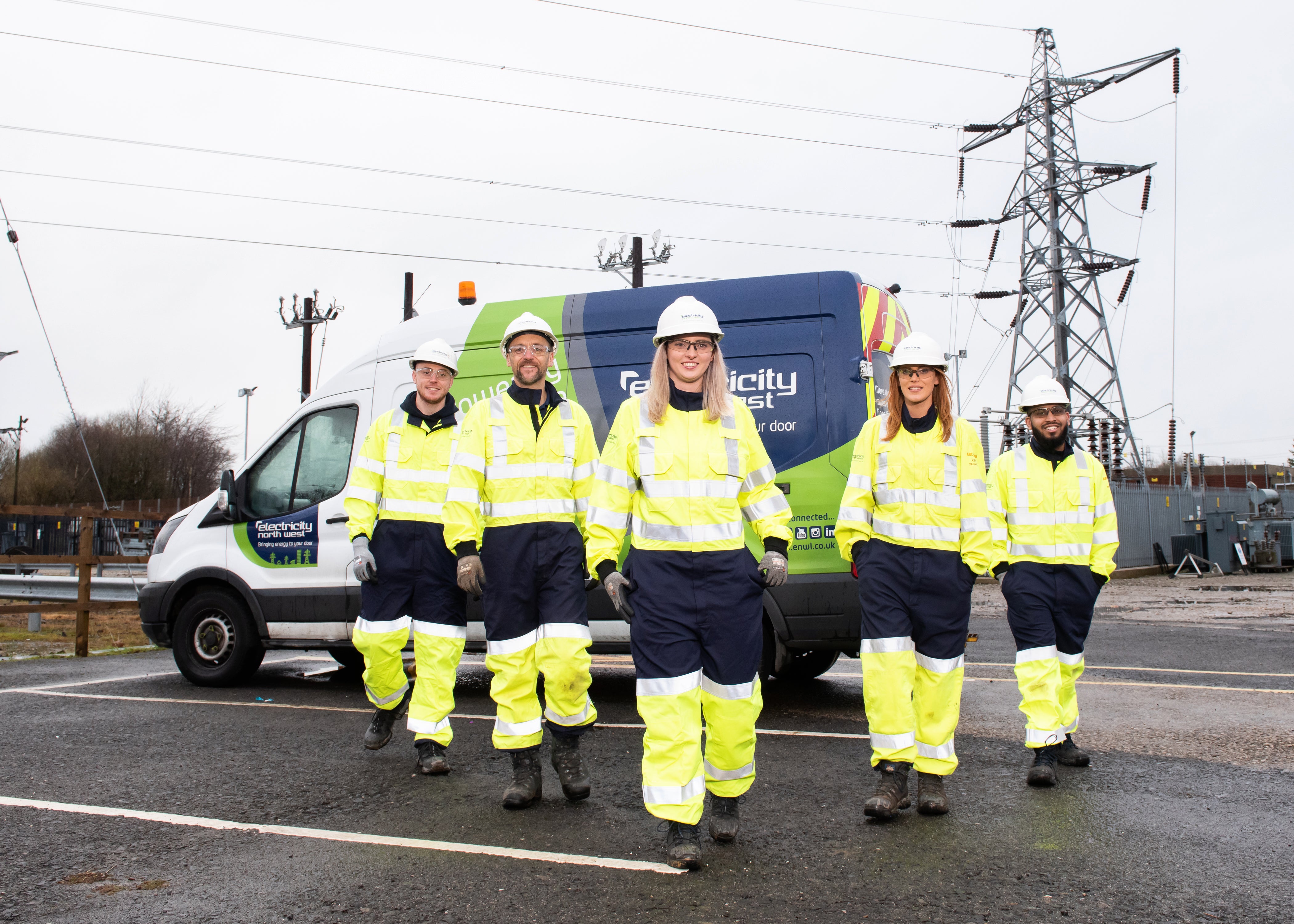As one of the world’s leading electricity distribution network operators, Electricity North West is on the front row in the race towards decarbonisation.
Electricity North West is responsible for maintaining and upgrading 13,000km of overhead power lines and more than 44,000km of underground electric cables serving residents and businesses in north-west England.
It operates one of the most reliable networks in the world and has earned a reputation for cutting-edge innovation too. The company is currently developing a £2 billion investment plan up to 2028 to keep it ahead of the pack.
The cornerstone of those plans is in making sure that the network helps the region and the UK meet its stretching net-zero targets – and innovation is the answer.
One scheme currently being rolled out throughout the north-west is Customer Load Active System Services (CLASS), a globally recognised project generating interest across three continents.
Costing £10 million to develop, CLASS helps balance electricity grids. Rather than increasing generation to meet peaks in demand, the technology reduces demand by lowering voltage by an imperceptible amount for a short time.
“CLASS makes small reductions in voltage that our customers don’t notice but that can save a significant amount of power for the region and money for our customers,” says Steve Cox, Engineering and Technical Director at Electricity North West. “We’ve deployed CLASS over the past three years and it is now a key part of managing both the regional and UK power grid.
“As the UK continues to decarbonise, we need new technologies to balance customer demand and variable output renewable generation sources such as wind. CLASS is a proven technology, invented in the north-west, which has been successfully used hundreds of times. The need for such technologies will become even more important as we move forward towards a low-carbon future. Even better, CLASS is carbon neutral and no actual energy is used when it is deployed.
“CLASS helps keep customer bills down and reduces the carbon, with no difference in service. It’s a clear win-win. It’s also significantly cheaper than traditional balancing techniques.”
Since rolling out CLASS, Electricity North West has been installing voltage controllers in its substations. Mr Cox also revealed all UK distribution network operators and energy regulator Ofgem are now working together to see how CLASS can be deployed across the country.
Back in August 2019, a mass blackout affected millions of properties throughout the UK. Mr Cox says that had all DNOs used CLASS, not one property would have experienced an outage.
“Traditionally, when networks experience a loss, the generation makes up the difference and turns it up,” he says. “CLASS turns demand down when required, with very small changes that have huge effects.
“The 2019 blackout was a prime example of how beneficial CLASS can be – they are rare, but utilising CLASS would have meant customers wouldn’t have experienced a loss of power.
“As well as keeping the power on, our predictions say that if rolled out nationally, bills could be reduced by £1.50 per year for the next 25 years, which equates to a £1.7 billion saving for 26 million customers.”
Originally published on Business Reporter
Want to know more? Contact us at InnovationTeam@enwl.co.uk

